Filter by
3536 results found
-
Working Paper No. 1056
Federal Tax Transfers and Demographic Transition: Balancing Equity and Efficiency
October 07, 2024 Against the backdrop of demographic transition in India, the study highlights the necessity of integrating the elderly population as a critical factor in formula-based intergovernmental fiscal transfers. The demographic transition,...more Publication -
Wray on DemystifySci: “Tally Sticks, Central Banks, Evolution of Money”
October 06, 2024 Listen to Senior Scholar L. Randall Wray on Demystify Sci Podcast #288. L. Randall Wray is a long-term proponent of Modern Monetary Theory, a heterodox macroeconomic theory that teaches that the government should not worry about accruing debt, because it is always able to print more money to service that debt. News -

Tcherneva on Marketplace: “Automation on the Waterfront”
October 04, 2024 Be sure to check out Institute President Pavlina R. Tcherneva‘s interview with Marketplace Morning Report, where she discusses the recent job openings and labor turnover data on the episode “Automation...more News -
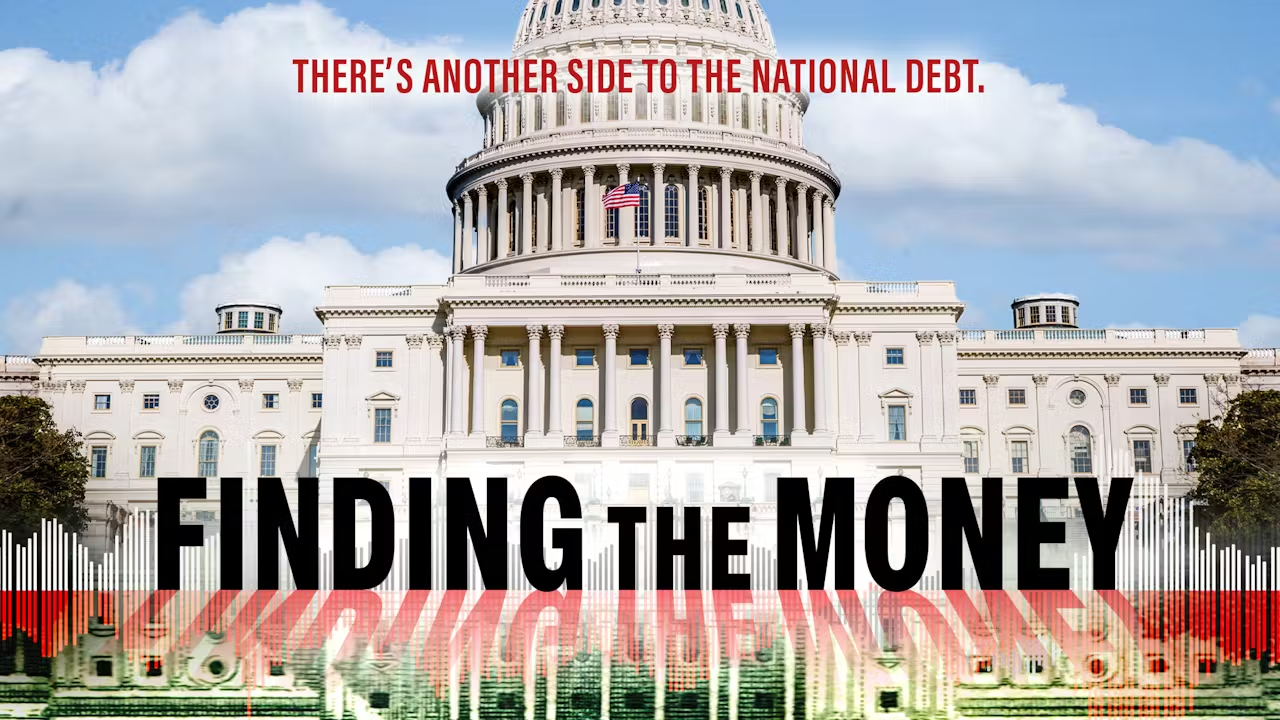
Now Available Worldwide: Finding the Money
October 03, 2024 Now available worldwide, Finding the Money explores ideas and principles of MMT, following Scholar Stephanie Kelton. The documentary features other Levy Scholars, including L. Randall Wray, Matthew Forstater, Fadhel Kaboub, Pavlina R....more News -

Tcherneva on WAMC Northeastern Public Radio: The 2024 Election and the Economy
October 02, 2024 The Roundtable Panel: a daily open discussion of issues in the news and beyond. Today’s panelists are Aaron Pacitti is Professor of Economics at Siena College, Pavlina Tcherneva is an...more News -
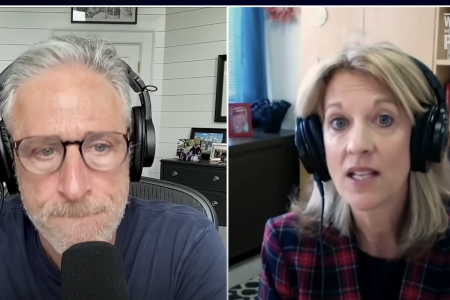
Scholar Stephanie Kelton on The Weekly Show with Jon Stewart
September 27, 2024 On September 27, Levy Scholar Stephanie Kelton appeared on The Weekly Show Podcast with Jon Stewart to discuss government spending and deficits. News -
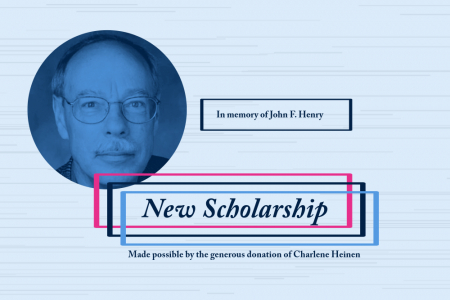
New Scholarship in Institutional Economics
September 26, 2024 The Scholarship in Institutional Economics, established in memory of John F. Henry, is awarded to a student interested in research in political economy, historical and evolutionary analysis of modern market economies, and...more News -

New Scholarship in Gender Studies
September 23, 2024 The Scholarship in Gender Studies is awarded to a student showing academic promise and interest in incorporating gender awareness in the study of the macroeconomy. Awarded in memory of Nilüfer A. Cagatay. News -
Working Paper No. 1055
The Relation Between Budget Deficits and Growth: Complicated but Clear
September 18, 2024 This paper looks at the relationship between government budget deficits and the growth rate of GDP. While orthodox economic theory offers several reasons to believe that growing deficits might be...more Publication -
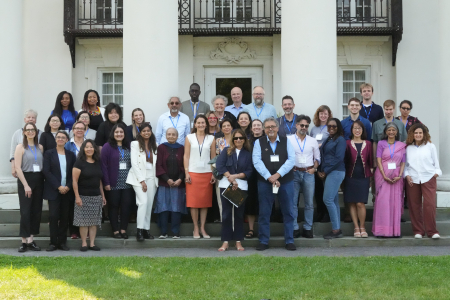
Recap: A Path to Inclusive Development, A Levy Institute Workshop in Gender Studies
September 18, 2024 On September 11–13, the Levy Institute, with generous support from The William and Flora Hewlett Foundation, convened A Path to Inclusive Development: Unpacking Gender Inequalities in Economic Theory and Policies. This was...more News -
Galbraith and Weber for the Boston Globe: “Harris’s fight on price gouging is good economics”
August 22, 2024 “The idea that prices serve to balance supply and demand — and should be left free to do so — is bred in the bones of economists. So much so...more News -
Levy Scholars Present at Gender Disparities Workshop in Accra, Ghana
August 20, 2024 Levy Scholars presenting at the workshop include: Senior Scholar Ajit Zacharias: Old-age income (in)security in Ghana and South Africa: trends and prospects Senior Scholar Thomas Masterson: Methodological aspects Research...more News -
Tcherneva on Background Briefing with Ian Masters
August 05, 2024 Levy Institute President Pavlina R. Tcherneva spoke with Ian Masters on his podcast Background Briefing on “Wall Street’s and the Global Drop in Markets Does Not Spell Recession.” Background Briefing with Ian...more News -
Event
Racial, Gender, and Regional Inequalities in Brazil’s Care Provision and the Evolving Role of the State
Join us for our first session of the 2024 Fall Semester, with Luiza Nassif Pires, Assistant Professor at the Institute of Economics at Unicamp and the Director of the Research...more Event -
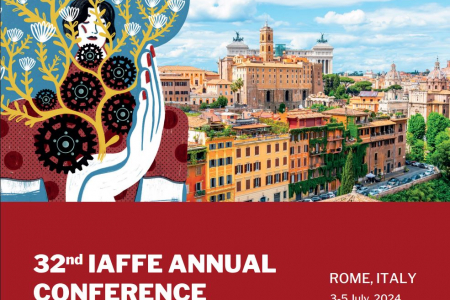
Levy Scholars Present at IAFFE Conference 2024 in Rome
July 06, 2024 On July 3-5, Senior Scholars Thomas Masterson and Gennaro Zezza and Research Scholars Aashima Sinha and Francesco Zezza presented at the 32nd Annual Conference of the International Association for Feminist Economists (IAFFE)...more News -

The Levy Institute Welcomes Pavlina R. Tcherneva as Incoming President
July 01, 2024 The Levy Economics Institute of Bard College welcomes Pavlina R. Tcherneva as its next president, succeeding Dimitri B. Papadimitriou, who has held the role since 1986. “After thirty-eight years as...more News -
Working Paper No. 1054
Gender-Responsive Public Financial Management: The Indian Chronology of Gender Budgeting
June 28, 2024 Gender budgeting is a public financial management (PFM) tool, used to ensure accountability mechanisms. The analysis of “process” indicators of gender-responsive PFM (GRPFM) reveals that India has been successful in...more Publication -
Working Paper No. 1053
Foreign Deficit and Economic Policy: The Case of Mexico
June 07, 2024 The article analyzes Mexico under globalization, particularly on the free mobility of capital. It argues that globalization has detrimentally impacted the productive and external sectors, causing the economy to become...more Publication -
Working Paper No. 1052
Exchange-Rate Stability Causes Deterioration of the Productive Sphere and Destabilizes Developing Economies
June 05, 2024 For Matías Vernengo and Esteban Pérez Caldentey (2020), the MMT literature overemphasizes the choice of the exchange rate regime and the relevance of a flexible exchange rate regime, as well...more Publication -
 Strategic Analysis
Strategic AnalysisU.S. Economic Outlook: Prospects for 2024 and Beyond
June 04, 2024 In this report, Institute President Dimitri B. Papadimitriou, Research Scholar Giuliano T. Yajima, and Senior Scholar Gennaro Zezza discuss the rapid recovery of the US economy in the post-pandemic period....more Publication -
Working Paper No. 1051
Euro Interest Rate Swap Yields: Some ARDL Models
May 10, 2024 This paper examines the dynamics of euro-denominated (EUR) long-term interest rate swap yields. It shows that the short-term interest rate has an economically and statistically significant effect on EUR swap...more Publication -
 One-Pager No. 72
One-Pager No. 72If Government Can Print Money, Why Does It Borrow?
May 10, 2024 Recently, the neglected question of why the US government borrows, given that it can print money, has arisen in the context of discussions surrounding a new documentary, Finding the Money. As L. Randall Wray observes in this one-pager, Modern Money Theory has been providing answers to this question for some time; and, he argues, it is a topic that mainstream economists are ill-equipped to address, since very few concern themselves with the monetary operations that underlie the question of why a currency-issuing government issues debt. Publication -
Working Paper No. 1050
Macroeconomic Effects of a Government Overdraft on Its Central Bank Account
May 07, 2024 The Guyana government, from 2015 to 2021, accumulated a large overdraft on its central bank account. It owed this overdraft to a binding debt ceiling limit and fractious political environment...more Publication -
Working Paper No. 1049
Deindustrialization from the Center Perspective: US Trade and Manufacturing in the Last Two Decades
May 07, 2024 We argue that the US trade and industry sector has experienced several unsustainable sectoral processes, including (i) a fall in the trade balance in machinery and equipment and high-tech (HT)...more Publication



